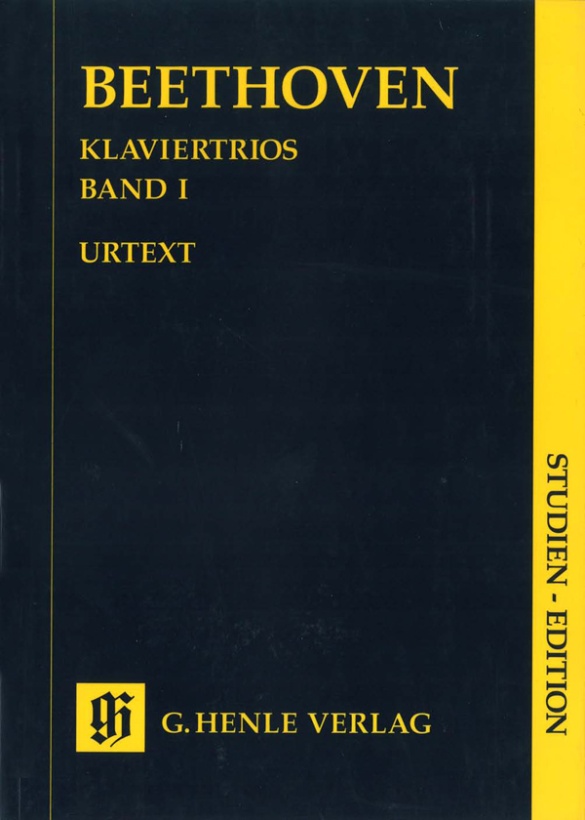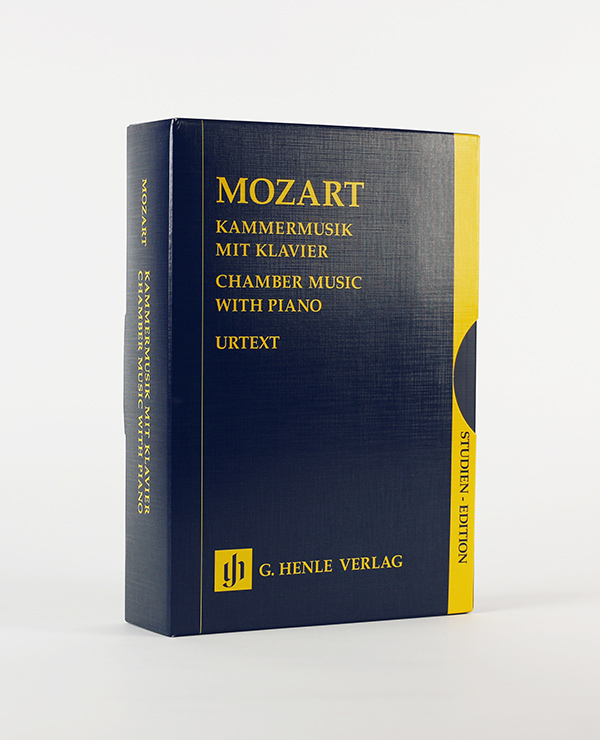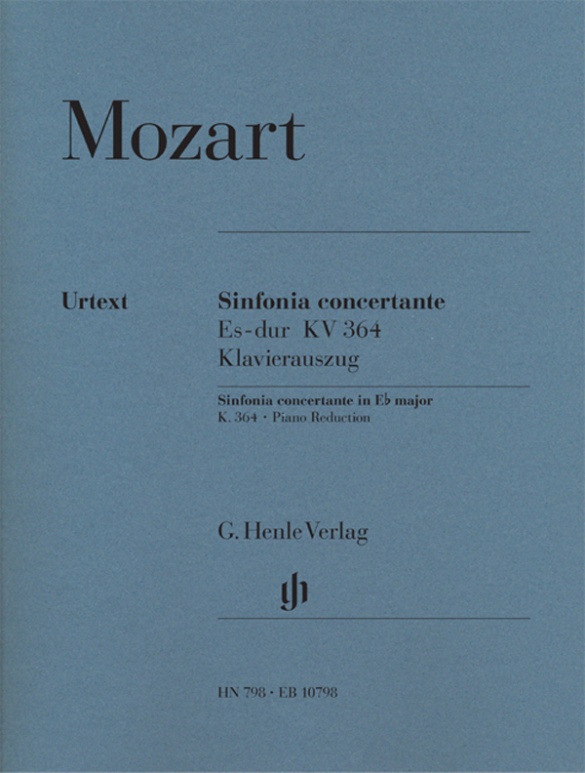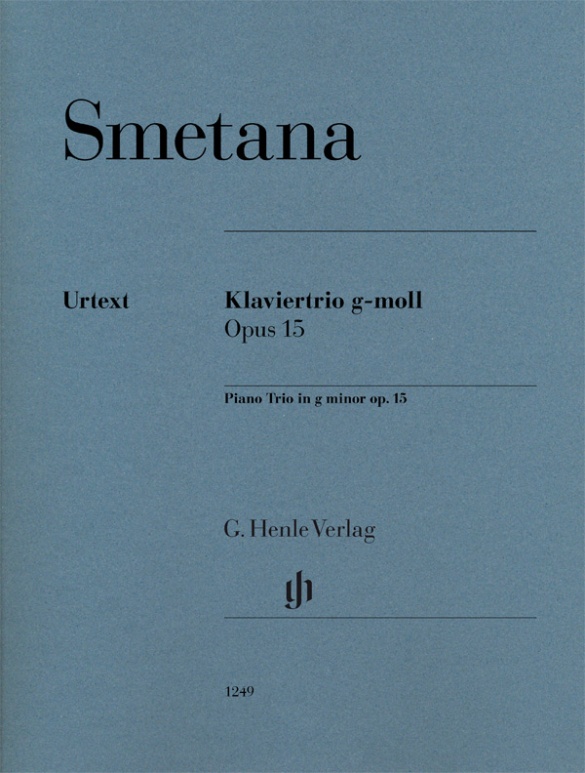

Bedrich Smetana
Piano Trio g minor op. 15
When Smetana composed his Piano trio in the autumn of 1855, it was an act of catharsis to recover from the death of his four-year-old daughter Friederike. This highly emotional work was also his first large-scale piece of chamber music. Its first public performance in December 1855 was regrettably not a great success, and so Smetana embarked on a protracted process of reworking it. By the late 1850s, it had reached its current form. Smetana always liked to perform it, but only found a publisher for it in 1880, when one of his pupils invited the Hamburg publisher Hugo Pohle to a performance at short notice. Smetana specialist Milan Pospíšil has based this Henle Urtext edition on the first edition by Pohle, but has also drawn upon the earlier sources. This has enabled him to iron out numerous inconsistencies found in the first edition.
Content/Details
About the Composer
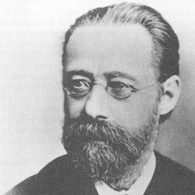
Bedrich Smetana
His work is regarded as a realization of a Czech nationalist musical style. His oeuvre comprises eight operas, symphonic poems, a little chamber music, numerous piano compositions, several vocal works, and songs.
| 1824 | Born in Litomyšl on March 2, the son of a beer brewer. Already successful as a pianist during his high school years. |
| 1844 | Composition pupil of Josef Proksch in Prague. Music teacher to aristocratic families. |
| 1848 | Music school of his own. |
| 1854 | Completion of his only symphony, “Triumphal Symphony” in E major, Op. 6. |
| 1856–61 | Director of the Philharmonic Society in Gothenburg. |
| 1858 | Symphonic poem “Richard III” and “Wallenstein’s Camp” after Liszt’s example. |
| 1861 | Return to Prague, involvement in the emergent Czech culture, also as a critic. |
| 1866 | Music director at the Czech Interim Theater in Prague. Premiere of the operas “The Brandenburgers in Bohemia” and “The Bartered Bride,” the latter to great acclaim; it is his best-known work and regarded as a nationalist opera. |
| 1868 | Premiere of “Dalibor” as a serious nationalist opera. |
| 1869–72 | Composition of the opera “Libuše.” |
| 1874 | Successful premiere in Prague of the opera “The Two Widows.” Loss of hearing and thereby of his music director position. He nevertheless continues to compose. |
| 1872–79 | Cycle of six symphonic poems “Má vlast” (“My Homeland”) as his most well-known symphonic works, including “Vltava” (“The Moldau”) with passages of tone painting. |
| 1876 | Premiere in Prague of the popular opera “The Kiss.” String Quartet No. 1 in E minor, “From My Life.” |
| 1878 | Premiere of the comic opera “The Secret” and the festival opera “Libuše” (1881), which harkens back to a Czech saga. |
| 1884 | Death in Prague on May 12. |
About the Authors
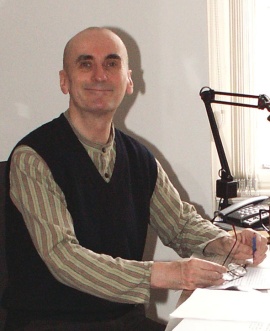
Milan Pospísil (Editor)
Dr. Milan Pospíšil, born in 1945, studied music theory and music history at the Charles University in Prague as well as at the Ruhr-Universität in Bochum (1963–1969); in 1971 he did his doctorate there with a thesis on “Giacomo Meyerbeer: Les Huguenots. Příspěvek k analýze stylu”, and at the Czechoslovak Academy of Sciences in 1988 on “Antonín Dvořák: Dimitrij, op. 64. Kritická edice”.
He worked as a specialist and scholar at the Czechoslovak Academy of Sciences (now Academy of Science of the Czech Republic) in Prague for almost 30 years. In 1981 he co-founded the Smetana Festival and the interdisciplinary symposium on the issues of the 19th century in Pilsen, which still takes place today. Since 2000 he has been the curator and a research associate at the National Museum in Prague.

Klaus Schilde (Fingering)
Prof. Klaus Schilde, born in 1926, spent his childhood in Dresden. There he was greatly influenced by Walter Engel, who taught him the piano (Kodaly method), composition and violin. From 1946–1948 he studied at the music conservatory in Leipzig with Hugo Steurer. After moving to the west in 1952 he studied with Walter Gieseking and Edwin Fischer, as well as with Marguerite Long, Lucette Descaves and Nadia Boulanger in Paris.
Schilde won numerous prizes. From 1947 onwards he gave concerts as a soloist and chamber musician on almost every single continent with renowned orchestras. He taught at the music conservatories in East Berlin Detmold, West Berlin, Munich, Tokyo (Geidai) and Weimar. From 1988–1991 he was President of the Staatliche Hochschule für Musik und Theater in Munich, where he also taught for decades as a professor. There are numerous radio and television broadcasts with Klaus Schilde as well as CD recordings. Schilde has contributed fingerings to almost 100 Henle Urtext editions.
Prof. Klaus Schilde passed away on 10 December, 2020.
Product Safety Informations (GPSR)

G. Henle Verlag
Here you can find the information about the manufacturer of the product.G. Henle Verlag e.K.
Forstenrieder Allee 122
81476 München
Germany
info@henle.de
www.henle.com
Only the piano part has suggested fingerings, although there are printed bowings in the string parts. The cello part has foldout pages which avoid impossible page turns. This edition is also available in the Henle Library App. You simply can’t go wrong with this publication.
Stringendo, 2019recommendations
autogenerated_cross_selling
Further editions of this title


